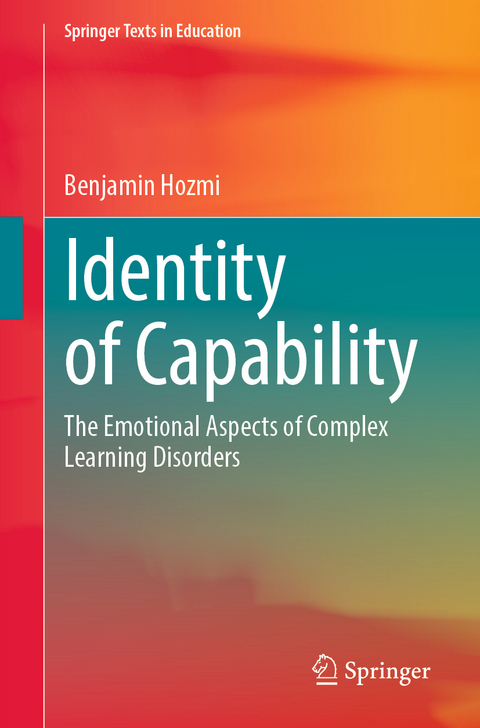
Identity of Capability
Springer International Publishing (Verlag)
978-3-031-08348-8 (ISBN)
This textbook focuses upon understanding the importance of building an identity of capability as a means of growth, giving, and living a rich and satisfying personal and interpersonal life for people with complex learning disorders. Through this book, teachers will gain a greater understanding of the emotional world of these students and will be able to 'tune in' and build trust.
The volume presents tools for facilitating 'empowered teaching' which supports teachers to create a learning climate that will enable students with complex learning disorders to build trust, gain understanding, and promote development. Establishing an identity of capability will enable students in general, and adults with complex learning disabilities in particular, to identify their true strongpoints, to conceptualize them, and to place them at the forefront of their self-image.
The text provides many lively examples for empowering teaching and for implementing the principles of intervention and teaching to students with complex learning disorders as presented in the book. It offers a revision of the teacher's role and tools for creating an accepting climate within the class that will enhance learning processes.
Benjamin Hozmi holds a doctorate in social work and is a lecturer, researcher, author in the field of disabilities, and the editor of "Shikum" (Rehabilitation), the publication of the Association of Rehabilitation Social Workers. He has been an instructor in the academia for the past 30 years and is currently the Academic Director at Beit Issie Shapiro. His work is based on humanist approaches. During the past 20 years he developed the Three Step Approach for establishing an identity of capability that is described in this book.
Part 1: The Emotional World of Adults with Complex Learning Disabilities.- Chapter 1: Complex Learning Disabilities: A Systematic Perspective.- Chapter 2: The Emotional World of Adults with Complex Learning Disabilities.- Part 2: Identity of Capability.- Chapter 3: Identity and Complex Learning Disabilities.- Chapter 4: Identity of Capability.- Chapter 5: Paradigms that Promote and Detain Building an Identity of Capability.- Part 3: "The Three - Step Approach to Building an Identity of Capability".- Chapter 6: Increasing Self - Love.- Chapter 7: The Second Step - Increasing Love for Others.- Chapter 8: The Third Step - Vision, Happiness, and Fulfillment.- Part 4: The Working Model for Groups in "Identity of Capability - Introduction to Practical Psychology".- Chapter 9: Integration and Striving for Equality in Academic Studies.- Chapter 10: What is Cognitive Accessibility in the Academia?.- Chapter 11: The Power of the Group in Building an Identity of Capability.- Chapter 12: The Introductory Discussion with Candidates for the Program.- Part 5: Empowering Teaching - Meaningful Learning in an Inclusive Climate.- Chapter 13: What is Empowering Teaching?.
| Erscheinungsdatum | 17.11.2022 |
|---|---|
| Reihe/Serie | Springer Texts in Education |
| Zusatzinfo | XVI, 166 p. 7 illus., 4 illus. in color. |
| Verlagsort | Cham |
| Sprache | englisch |
| Maße | 155 x 235 mm |
| Gewicht | 288 g |
| Themenwelt | Geisteswissenschaften ► Psychologie ► Pädagogische Psychologie |
| Sozialwissenschaften ► Pädagogik ► Didaktik | |
| Sozialwissenschaften ► Pädagogik ► Sonder-, Heil- und Förderpädagogik | |
| Schlagworte | Academic inclusion • cognitive accessibility in academia • Cognitively accessible academic learning • Complex learning disabilities • Complex learning disorders emotions • Emotional aspects of learning disorders • Empowering teaching • Identity and complex learning disabilities • Identity of capability |
| ISBN-10 | 3-031-08348-2 / 3031083482 |
| ISBN-13 | 978-3-031-08348-8 / 9783031083488 |
| Zustand | Neuware |
| Haben Sie eine Frage zum Produkt? |
aus dem Bereich


